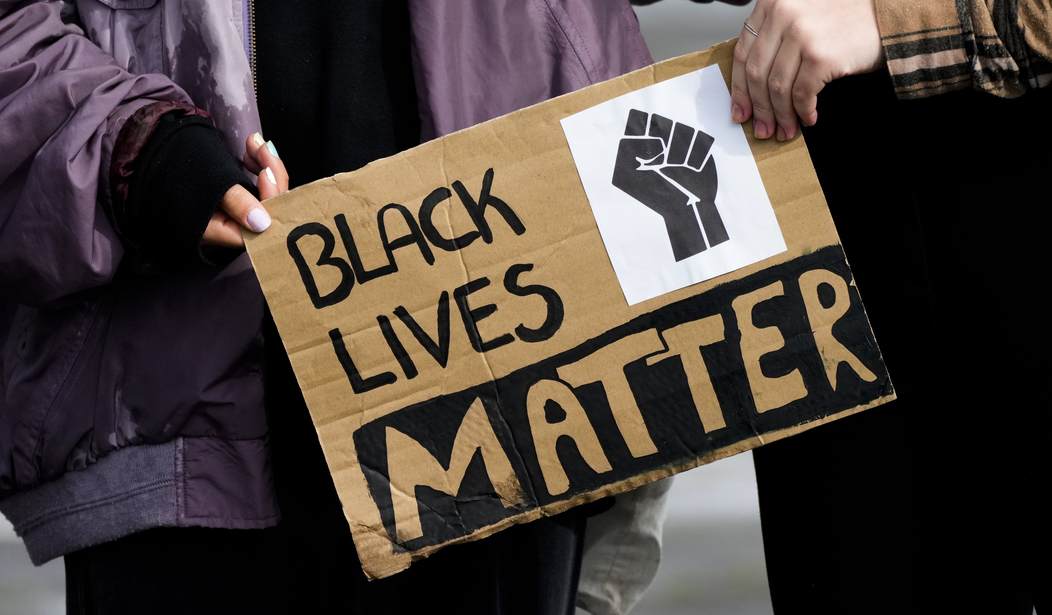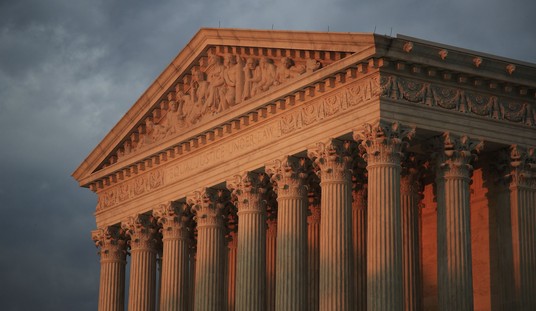It's been five years since the George Floyd/BLM protests and riots. Therefore, the leftwing legacy media seizes upon this occasion to pull out its race-colored thermometer to measure America's post George Floyd "racial progress."
A recent New York Times headline read, "Five Years After Floyd -- We look at what has changed since George Floyd's murder." According to the Times, not much: "States and cities enacted new policies aimed at improving policing, but the data suggests that these changes have had little impact on accountability or the number of killings by police officers."
Another Times article wrote: "Sunday is the fifth anniversary of George Floyd's murder by a Minneapolis police officer, a searing moment of brutality that ignited what may have been the largest social movement in U.S. history. Five years later, the movement that his death helped begin may feel like it's in reverse."
Beginning in May 2020, there were an estimated 9,000 protests in cities across America. As many as 25 people were killed and 2,000 police officers injured, with an estimated $2 billion and insured property damage. A report by The Major Cities Chiefs Association said violence occurred in 7% of the protests, "624 arsons were reported and 97 police vehicles were burned," and there were 2,385 looting incidents.
But Minneapolis police officer Derek Chauvin -- found guilty of murdering Floyd, who resisted arrest -- was never charged with a hate crime. The lead prosecutor, a black man, never even accused Chauvin of being motivated by Floyd's race.
"The Fall of Minneapolis," a documentary available for free on YouTube, convincingly argues the cocktail of drugs in Floyd's system played a role in his death and that the knee maneuver Chauvin used was taught in the police academy, contradicting the police chief's testimony. During the trial, the defense use of force expert testimony was at least as convincing as that of the prosecution. Given the prosecution's burden of proof beyond a reasonable doubt, this alone warranted a "not guilty" verdict. But the big question remains: What did the death of George Floyd have to do with race?
Recommended
The media obsession with cops-killing-unarmed-black-men stories fuels the impression that it is a frequent occurrence when, in fact, it is quite rare -- and almost always completely avoidable if the suspect merely complied. Still more rare is where the evidence shows that but for the suspect's race, the cop would not have used deadly force.
An unarmed suspect can be reasonably perceived by a police officer as a lethal threat. In 1999, four plain clothes NYPD officers shot and killed Amadou Diallo, an African immigrant who matched the description of a serial rapist. Rather than show his hands as demanded by the cops, Diallo reached for his wallet. Fearing he was reaching for a gun, the cops fired. Then-New York U.S. Senate candidate Hillary Clinton pronounced the cops "murderers." A year later, a jury that included four blacks concluded the cops reasonably perceived Diallo's actions as threatening and found all four cops not guilty.
In recent years, the police have killed twice as many whites than blacks and have killed more unarmed whites than blacks. And many studies find the police more hesitant, more reluctant to use deadly force on black suspects than white suspects. Before his research results, Roland Fryer, a Harvard economics professor from inner-city Baltimore, assumed the cops disproportionately used deadly force against blacks because they are blacks.
Fryer called his study results the most "surprising" of his career. He found no evidence that cops use deadly force against blacks as a result of their race. Further, he found cops more hesitant to use daily force against blacks compared to whites. Fryer said friends advised him against publishing his study and warned the backlash from disputing the cops-are-out-to-get-blacks narrative would hurt Fryer's career.
After publishing the study, Fryer received death threats. He said he was "under police protection for about 30 or 40 days." Why wasn't the result reached by Fryer, as well as other studies coming to the same conclusion, hailed as good news in "race relations"? Police "systemic racism" stories grab eyeballs and confirm the fake racism narrative invested in by so many.

























Join the conversation as a VIP Member